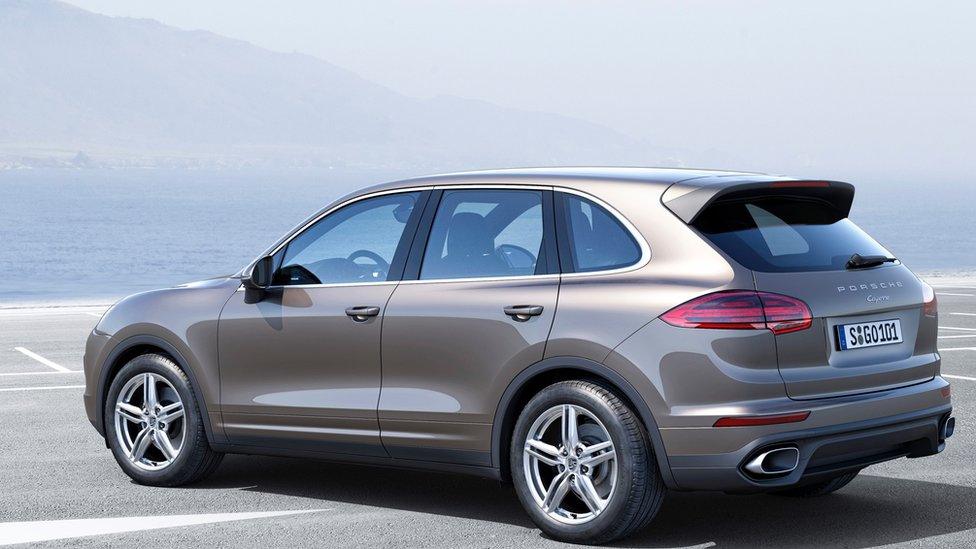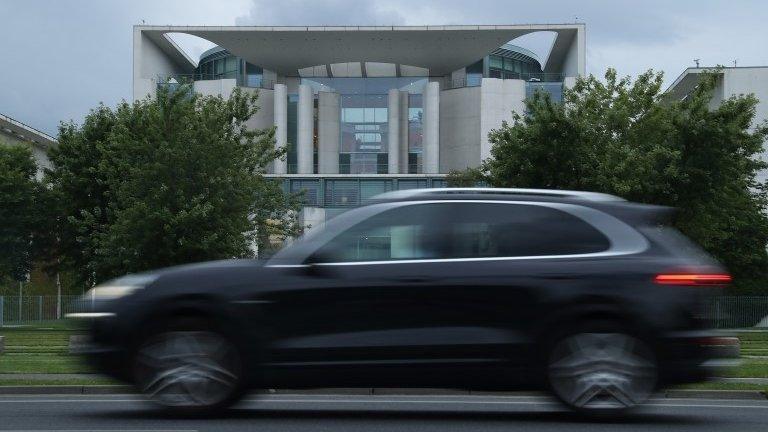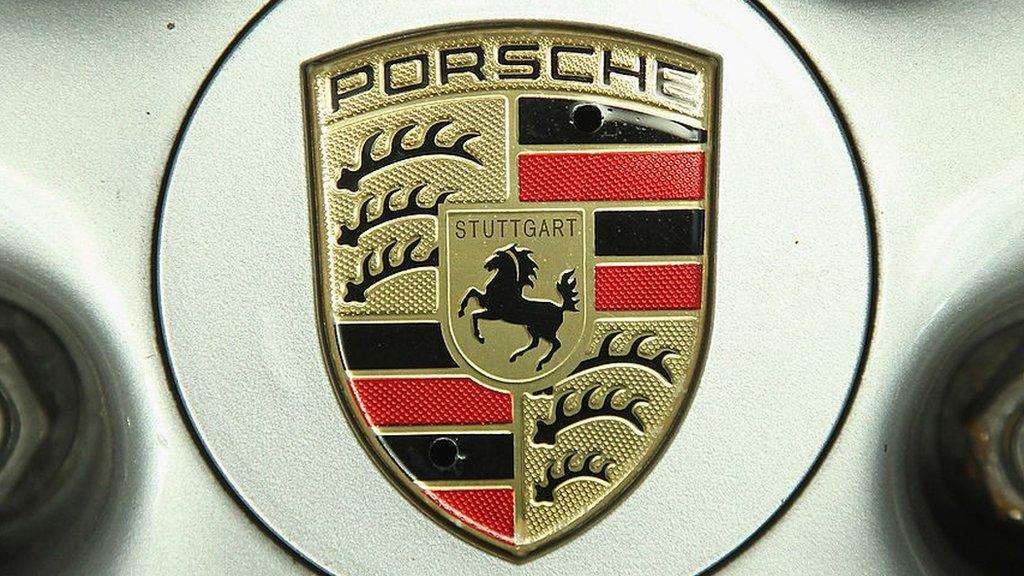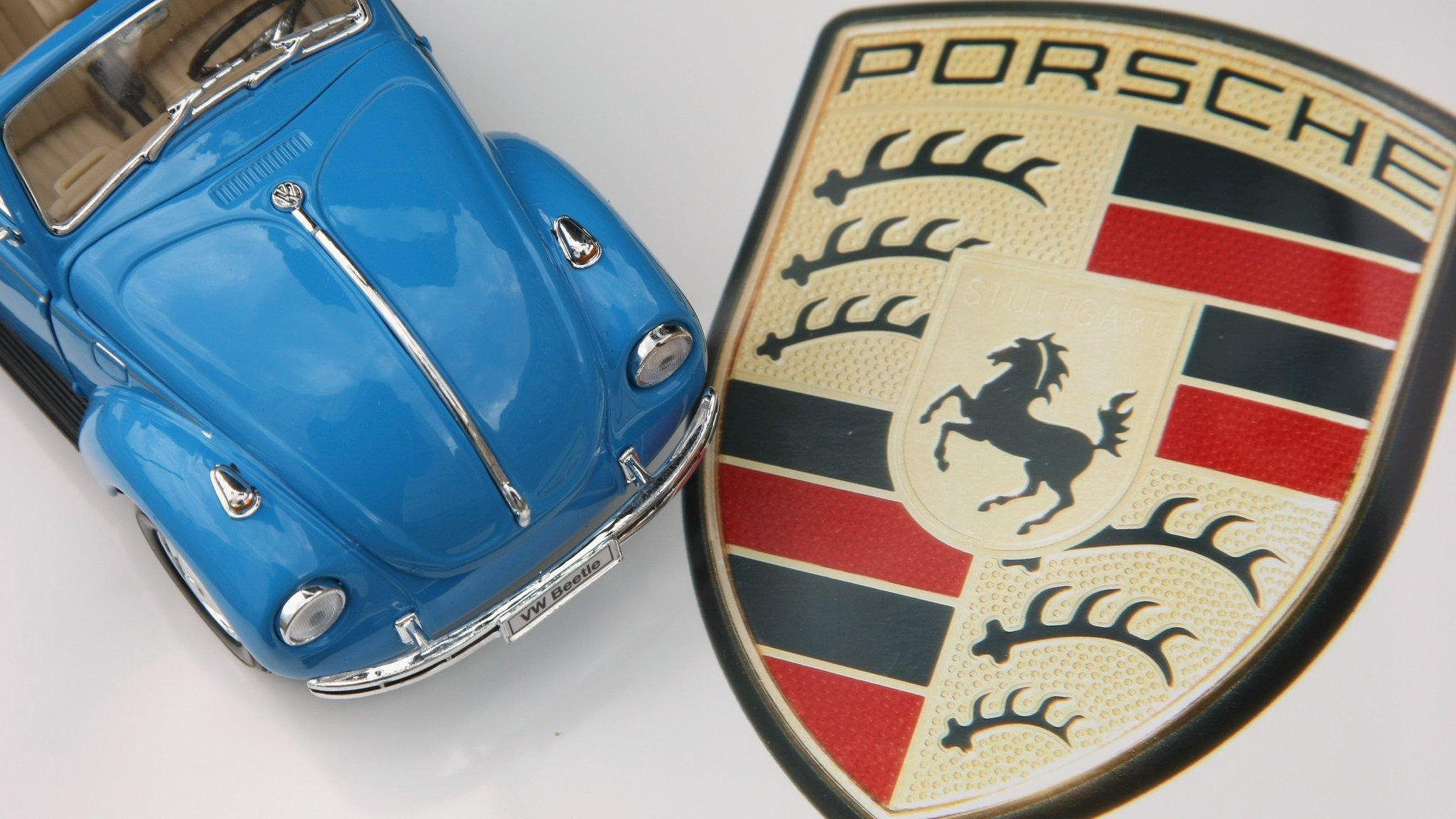Porsche to recall 22,000 cars over emissions software
- Published

The German government believes Porsche will quickly address the software problem
Germany's transport minister has announced a recall of 22,000 Porsche cars to remove what he says is illegal emissions-controlling software.
He said that luxury marque Porsche would bear the cost of the recalls of the affected 3-litre Cayenne models.
It comes as Porsche's sister firm Volkswagen says it will refit almost a million more diesel cars in Germany.
VW admitted in 2015 that some of its diesel cars were fitted with a "defeat device" to cheat on emissions tests.
'No explanation'
Allegations about Porsche first emerged in German magazine Der Spiegel last month.
It said, external it was told by a source that the Porsche Cayenne had a "warm up mode" whose true purpose was to comply with emissions requirements. It said tests showed that once the car was confronted with small bends or a slope it switched to a different mode and emissions were higher.
"There is no explanation why this software was in this vehicle," German Transport Minister Alexander Dobrindt said on Thursday.
"These vehicles are equipped with modern emissions-controlling technology so we think these vehicles are technically able to stick to emissions limits and we therefore believe Porsche will quickly be in a position to bring the software into conformity (with the law)."
SUVs and vans
Meanwhile, VW will "offer to refit four million vehicles and thereby significantly reduce emissions," chief executive Matthias Mueller said on Thursday after meeting Environment Minister Barbara Hendricks.
Some 2.5 million VW cars are already covered by a recall of diesel vehicles introduced after the firm first owned up to cheating regulatory emissions tests.
Last week it was announced that VW subsidiary Audi would be offering a free software upgrade for 850,000 diesel cars across Europe, some 600,000 of them in Germany.
That leaves close to a million other cars to be included in the new refit plans. These include models from subsidiary Porsche, VW's Touareg sport utility vehicles, and some of its Transporter vans.
Anti-trust regulators
Separately, VW has been forced to defend its record after allegations that it teamed up with other German car giants to breach EU cartel rules.
VW said it was normal for manufacturers to exchange technical information to speed up innovation.
However, it declined to comment on specific allegations that five German carmakers colluded on price and technology.
Daimler has also called the allegations speculative.
EU and German anti-trust regulators are looking at allegations that BMW, Daimler and VW, including its subsidiaries Audi and Porsche, collaborated for decades on many aspects of development and production, disadvantaging customers and suppliers.
- Published27 July 2017

- Published12 June 2017

- Published17 May 2017
